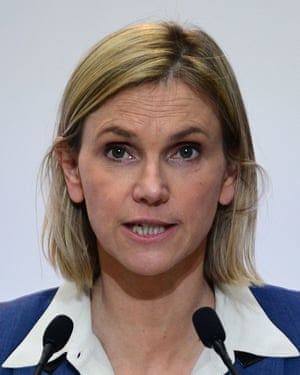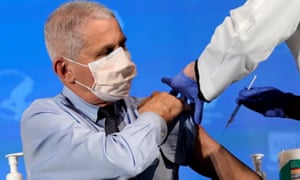
Brazil variant cases found in UK
Cases of the virus variant first detected in Brazil have been discovered in the UK for the first time, Public Health England has said.
The variant has been labelled a “variant of concern” as there are fears that it ma existing vaccines may be less effective against it.
Three cases have been detected in England and three in Scotland, PA reports.
The first two cases of the P.1 strain are from one household in South Gloucestershire with a history of travel to Brazil but the third is not linked.
The third person’s whereabouts is unknown, as PHE says they did not complete their test registration card so follow-up details are unavailable. This case is not believed to be linked as the virus was found to have slight genetic differences.
Officials are asking anyone who took a test on 12 or 13 February and who has not received a result or has an uncompleted test registration card to come forward immediately.
The Brazil variant shares key mutations with the variant detected in South Africa.
Updated
at 12.21pm EST
The Metropolitan police have handed out fines worth almost £70,000 after breaking up two parties in central London in the early hours of Sunday morning.
Officers responded to a report of an illegal gathering at an address in Mayfair at about 1.30am. They found about 50 people in the flat on Green Street, W1, all of whom were issued £800 fixed penalty notices.
The organiser, a 29-year-old man, was reported for a £10,000 fine for breaching Covid regulations.
Police then dispersed another illegal gathering in the same area at around 2am, fining each of the 20 people at the property in Brooks Mews, £800. Officers were unable to identify the organiser.
The total value of the fines issued for the two gatherings comes to £66,000.
Inspector Kevin Fagan of the Central West Command Unit, which covers Westminster, said: “Despite recent announcements about how and when Covid restrictions may be eased, nothing has changed in terms of the regulations.”
He criticised the gatherings as “irresponsible” and said that “people’s selfish actions” worsen pressure on emergency services, adding that police will continue to enforce the rules.
Updated
at 11.52am EST
Nigeria will receive its first batch of Covid-19 vaccines this week, with nearly 4m of its 16m vaccines due to arrive in Africa’s most populous nation via the Covax scheme.
The first doses will be administered to frontline healthcare staff.
The 3.92m doses of the Oxford/AstraZeneca vaccine are set to arrive on Tuesday, the National Primary Health Care Development Agency said in a statement reported by AFP.
“The delivery will mark the first arrival of Covid-19 vaccine in the country and make Nigeria the next West African country to benefit from the Covax facility after Ghana and Cote d’Ivoire (Ivory Coast),” it said.
Nigeria, which is home to 200 million people, aims to immunise at least 70% of its adult population over the next two years.
Updated
at 11.53am EST
UK records lowest number of new cases in five months
There have been a further 6,035 lab-confirmed coronavirus cases in the UK, according to government data – the lowest rise in cases since late September.
There were 9,834 new cases last Sunday. A total of 4,170,519 people have tested positive since the pandemic began.
A further 144 deaths within 28 days of a positive test were reported, bringing the total to 122,849. There were 215 last Sunday.
The seven-day rolling average, which evens out reporting irregularities in the daily figures, shows that cases are down by 21.2% compared with the previous week (15-21 February). Fatalities have decreased by 33.5% by the same measure.
There have been 135,613 deaths where Covid-19 is mentioned as a cause on the death certificate, registered up to 12 February.
Sunday figures are often lower because of reporting delays over the weekend.
Hello, I’m taking over the blog from Archie Bland now and will be updating it for the next few hours. If you want to draw my attention to a story or new development please DM me on Twitter.
Updated
at 11.53am EST
The Italian health ministry reported 17,455 coronavirus cases on Sunday, down from Saturday’s figure of 18,916. It also reported 192 deaths, down from 280 the previous day.
That’s it from me. Clea Skopeliti will take over shortly.
Updated
at 11.01am EST

There were scuffles between Israeli police and Purim celebrants in Jerusalem. Photograph: Menahem Kahana/AFP/Getty Images
Covid-19 curbs have curtailed celebrations of the Jewish costume festival of Purim, with police in Israel preventing parties and some rabbis urging people not to drink too much so social distancing is maintained.
Israel, which began emerging from its third national lockdown on 21 February, reimposed night curfews for the long Purim weekend and limited access to Jerusalem.
Purim parties were banned, with fines for anyone hosting them. That led to spontaneous street parties in Tel Aviv. Police commander Ziv Saguy said officers were giving out 200 fines an hour.
Several ultra-Orthodox Jewish leaders took out a front-page ad in a community newspaper urging a more abstemious Purim this year. “He who gets drunk loses his clarity of mind and is liable not to conduct himself with the necessary caution to safeguard his health,” the ad read, according to the Arutz 7 news site.
Israel’s ultra-Orthodox community make up about 15% of the population but have at times accounted for as much as 35% of coronavirus cases. Some ultra-Orthodox have defied state-ordered closures of schools and synagogues, touching off clashes with police.
As Purim festivities wound down on Sunday, one such confrontation flared up in Mea Shearim, an ultra-Orthodox district of Jerusalem, when costumed celebrants put up an effigy of the national police chief, a Reuters photographer said.
Riot police in surgical masks closed in, removing the effigy and scattering the celebrants, some of whom yelled abuse at the officers while others danced. Saguy said two men were arrested.
Meanwhile on Sunday, Israel confirmed it will vaccinate Palestinians in the West Bank with permits to work in Jewish settlements in the occupied territory and inside Israel against the coronavirus.
The Palestinian Authority said last week it had reached an agreement with Israel that would see the Jewish state vaccinate 100,000 Palestinian labourers.
Updated
at 10.47am EST
A single-shot Covid-19 vaccine by US drugmaker Johnson and Johnson is likely to be approved for use in the European Union in early March, a French minister said on Sunday.
The vaccine was cleared for emergency use in the US on Saturday, becoming the third available vaccine there. The single-shot vaccine is highly effective in preventing severe Covid-19, including against newer variants, the Food and Drug Administration (FDA) said before giving it the green light.

Agnes Pannier-Runacher. Photograph: Martin Bureau/AFP/Getty Images
The French industry minister, Agnès Pannier-Runacher, told France 3 television that the European Medicines Agency (EMA) was also evaluating information transmitted by the US pharmaceuticals company.
An EU approval in early March would allow the vaccine to be rolled out in late March or early April, she said, adding this was “good news” because it offers protection with a single shot in contrast to other vaccines requiring two.
She said it was possible that a booster shot was needed later “but we can’t be sure yet”.
The EU hoped to receive 600m doses of the vaccine by the end of June, she said.
France has so far vaccinated 1.5 million people, the minister said.
Updated
at 10.47am EST
Boris Johnson has tweeted about the UK’s vaccination programme, saying: “Twenty million people across the UK have now got the jab – a huge national achievement and a testament to the tireless work of NHS staff, volunteers, the armed forces and many more. I urge everyone to get the jab when called. Every jab makes a difference in our battle against Covid.”
NHS England chief executive Sir Simon Stevens said: “Vaccinating 20 million people – including 17 million across England – in a few short weeks shows the NHS vaccination campaign is firing on all cylinders, and looking out to Easter and beyond it’s full speed ahead.
“As we can see from other parts of the world, having vaccines from the manufacturers versus actually administering them to patients can be two different things. So this latest milestone is also a tribute to careful health service planning, effective organisation and amazing teamwork across the whole of the country.”
Updated
at 10.48am EST
Families with children in school or college will be able to test themselves for coronavirus twice a week from home under plans for schools to safely reopen in England from 8 March, Rajeev Syal reports.
The story continues:
Free tests will be provided to pupils’ households, as well as those in their childcare or support bubbles, regardless of whether anyone has symptoms, the government said on Sunday.
The rapid tests will be ordered and collected from local sites or administered through workplace testing programmes, the Department of Health and Social Care (DHSC) said. Secondary and college pupils will be tested with lateral flow tests twice a week, receiving three initial tests at school before they start taking them at home.
You can read the full piece here:
In the US, Dr Anthony Fauci, the country’s top infectious disease official, said he would take the newly approved Johnson & Johnson Covid-19 vaccine as he encouraged Americans to accept any of the three approved shots.
“All three of them are really quite good, and people should take the one that’s most available to them. If you go to a place and you have J&J, and that’s the one that’s available now, I would take it,” Fauci said on NBC’s Meet the Press.

Dr Anthony Fauci prepares to receive his first dose of the Moderna Covid-19 vaccine in December. Photograph: Reuters
The US government authorised Johnson & Johnson’s single-dose Covid-19 vaccine on Saturday, making it the third to be available in the country following ones from Pfizer/BioNTech and Moderna. Both of those vaccines require two doses.
Shipments to vaccination sites of J&J vaccine are expected to begin Sunday or Monday.
Both the Pfizer and Moderna vaccines showed higher efficacy rates in trials that used two doses versus J&J’s single-shot vaccine. However, direct comparison is difficult because the trials had different goals and J&J’s was conducted while more contagious new variants of the virus were circulating.
“You now have three highly efficacious vaccines, for sure. There’s no doubt about that,” Fauci said.
Updated
at 9.57am EST
More than 20m people now vaccinated in UK
More than 20 million people in the UK have now received their first dose of coronavirus vaccinations, new figures released on Sunday showed.
Vaccines minister Nadhim Zahawi hailed the news on social media, tweeting:
Nadhim Zahawi
(@nadhimzahawi)BINGO! One Score 💉💉💉 over 20,000,000 people have had the vaccination (1s dose). What an achievement for February 2021. What a team! Proud to be with you on this journey. @NHSuk https://t.co/pwGWJLOpcb
The UK vaccination programme, widely viewed as a success, leaves the country second only to Israel in vaccinations per capita.
Health secretary Matt Hancock said vaccinating more than 20 million people against coronavirus across the UK is a “magnificent achievement for the country”.
In a video on his Twitter account, Hancock said: “I’m absolutely delighted that over 20 million people have now been vaccinated across the UK – it’s absolutely fantastic.
“I want to thank every single person who’s come forward to get the jab because we know with increasing confidence that the jab protects you, it protects your community and it also is the route out of this for all of us.”
Updated
at 9.25am EST
A further 149 people who tested positive for coronavirus have died in hospital in England, bringing the total number of confirmed deaths reported in hospitals to 83,123, NHS England said on Sunday.
Patients were aged between 23 and 103. All except six, aged between 34 and 89, had known underlying health conditions.
The deaths took place between 8 January and 27 February. There were 22 other deaths reported with no positive Covid-19 test result.
Updated
at 9.19am EST
There are “definite lessons to learn” one year on from Wales’s first case of coronavirus, the country’s health minister has said.
Vaughan Gething said Wales would “definitely have done things differently” if it had the knowledge about Covid-19 that is available now.
Since a year ago, 203,625 confirmed cases and 5,340 deaths of people with coronavirus have been reported by Public Health Wales.

Welsh health minister Vaughan Gething. Photograph: Matthew Horwood/Getty Images
Gething told BBC Wales’s Sunday Supplement programme: “When I think about when coronavirus arrived in Europe, across Europe we plainly were shocked because we hadn’t had the sort of significant impact that Sars and Mers had in other parts of the world …
“We didn’t have the same level of response that other parts of the world did, who were much more rapid to take the sort of society-wide interventions that we eventually did.”
“Looking back, we’d say with our knowledge today we definitely would have done things differently,” he told the BBC. “We’d definitely have intervened more quickly but it was still the case that the advice to me was, with the knowledge we had at the time, ‘we think we gave you the right advice’.”
The Welsh government would like to “go further” on current measures at airports, with an approach to all international travel, not just a red list, Gething said.
“I think with the learning we had now, looking back then yes, I think we would have taken different measures earlier,” he said. “I think we would have taken a more restrictive approach to international travel.”
Updated
at 9.03am EST
Germany has classed France’s Covid-battered Moselle region as a high-risk area for virus variants, triggering tougher entry requirements at the border between the two neighbours.
France’s eastern Moselle region has been listed as an area “at particularly high risk of infection due to widespread occurrence of Sars-CoV-2 virus variants”, Germany’s Robert Koch Institute for disease control announced.
From Tuesday, cross-border travellers from Moselle will need to be able to show a recent negative coronavirus test.
Germany has already introduced tough checks at its borders with the Czech Republic and Austria’s Tyrol region, ignoring calls from Brussels to keep borders within the bloc open. The checks at the Moselle crossing will be less strict, with random stops and requests for negative tests rather than every vehicle being stopped.
Updated
at 8.53am EST
Summary of recent events
Here’s a roundup of key events around the world.
• In the UK, chancellor Rishi Sunak indicated that emergency support measures such as the furlough scheme will be extended beyond the end of April in the budget on Wednesday.
• In Germany, several states called for unused AstraZeneca coronavirus vaccines to be given to younger people, amid a low uptake of doses among the older population because of concerns, in contradiction of EU-wide guidance, over the safety of the AstraZeneca vaccine for over-65s.
• President Andres Manuel López Obrador of Mexico is expected to ask Joe Biden to consider sharing part of the US coronavirus vaccine supply at a virtual summit.
• Jordan’s interior and justice ministers were sacked for breaching health regulations to stem the spread of coronavirus.
• Hungary’s prime minister, Viktor Orbán, has been vaccinated with a coronavirus jab developed by China’s Sinopharm.
• Iran’s health ministry said the country’s coronavirus fatalities went past the 60,000 mark.
Updated
at 8.29am EST


